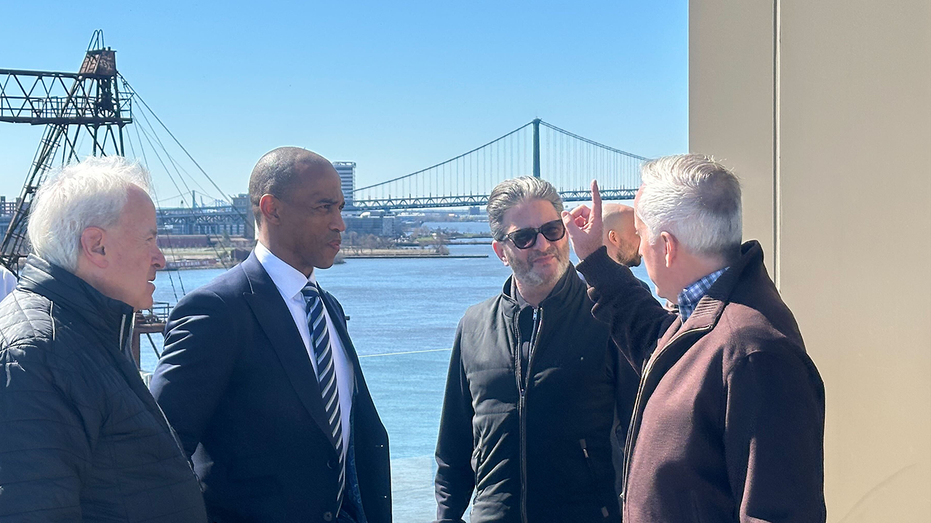HUD Chief Champions Private-Public Partnerships to Revitalize Philly’s Neglected Areas

Sarah Johnson
March 31, 2025
Brief
HUD Secretary Scott Turner showcases Philadelphia’s transformation through Opportunity Zones, highlighting public-private partnerships, revitalized neighborhoods, and ambitious plans for tackling housing, poverty, and economic growth.
HUD Secretary Scott Turner is putting the spotlight on how private-public partnerships can breathe new life into economically neglected areas, as evidenced by his recent tour of Philadelphia. Turner highlighted how initiatives like the Opportunity Zones program have transformed neighborhoods once plagued by poverty and crime into thriving hubs of development. Turner’s excitement for what he calls “Opportunity Zones 2.0” suggests even more ambitious plans are on the way.
Since its inception under the Trump administration’s 2017 Tax Cuts and Jobs Act, the Opportunity Zones program has attracted $84 billion in private investments, lifting one million people out of poverty. These zones are designed to incentivize investment in distressed areas through federal tax benefits. Turner, who previously led the Opportunity Zones Initiative, now serves as HUD Secretary in the second Trump administration, taking the program’s potential to new heights.
During his visit, Turner toured several revitalized Philadelphia sites. One standout was Grocery Outlet, a mixed-use development in the Sharswood-Blumberg neighborhood. This area, historically marred by crime and economic hardship, has seen remarkable improvements following a $30 million Choice Neighborhoods Grant from HUD in 2020, which attracted an additional $517 million in investments. The project now includes housing, a community center, a health clinic, and a grocery store—a beacon of transformation for the local community.
Another highlight was The Battery, a historic building in Philadelphia’s Fishtown neighborhood that’s been repurposed into a mixed-use development featuring nearly 200 apartment units and a boutique hotel. Once a shuttered post-WWI power plant, it now serves as a prime example of how Opportunity Zone tax incentives can preserve history while fostering modern economic growth.
Turner’s enthusiasm for these projects is palpable. Speaking from The Battery’s rooftop, he marveled at how the repurposed smokestacks now serve as private terraces, a symbolic nod to the building’s transformative journey. “This place was dilapidated for 50 years. Now, thanks to Opportunity Zones, it’s thriving again,” he said.
Philadelphia, like many cities, has faced challenges such as homelessness, drug addiction, and crime. Turner believes the government alone isn’t the solution. Instead, he advocates for partnerships with private investors, faith-based organizations, and nonprofits. “Homelessness is a big deal in our country,” Turner noted, pointing out that over 770,000 people were homeless on a single night in January 2024. He emphasized the importance of collaboration, saying, “Faith-based institutions and nonprofits have their feet on the ground doing the everyday work. The federal government is a great facilitator, but not the ultimate answer.”
Turner is also tackling immigration’s impact on housing, announcing that HUD will prioritize Americans over illegal immigrants for government-funded housing. “We’re putting those here illegally on notice. This is not acceptable. American citizens will benefit from taxpayer dollars,” he stated.
Through public-private initiatives like Opportunity Zones, Turner and HUD aim to address America’s housing crisis while fostering community and economic development. With more projects on the horizon, Philadelphia’s transformation might just be the blueprint for struggling cities nationwide.
Topics
Editor's Comments
Scott Turner’s ability to merge economic development with community uplift is impressive, but let’s not overlook the irony here: massive investment is being poured in, yet homelessness has risen by 18% nationwide. It’s a sharp reminder that while shiny new projects are great, the human cost needs to be addressed just as urgently. Also, turning smokestacks into terraces? That’s a level of creativity I didn’t know I needed in my life.
Like this article? Share it with your friends!
If you find this article interesting, feel free to share it with your friends!
Thank you for your support! Sharing is the greatest encouragement for us.



